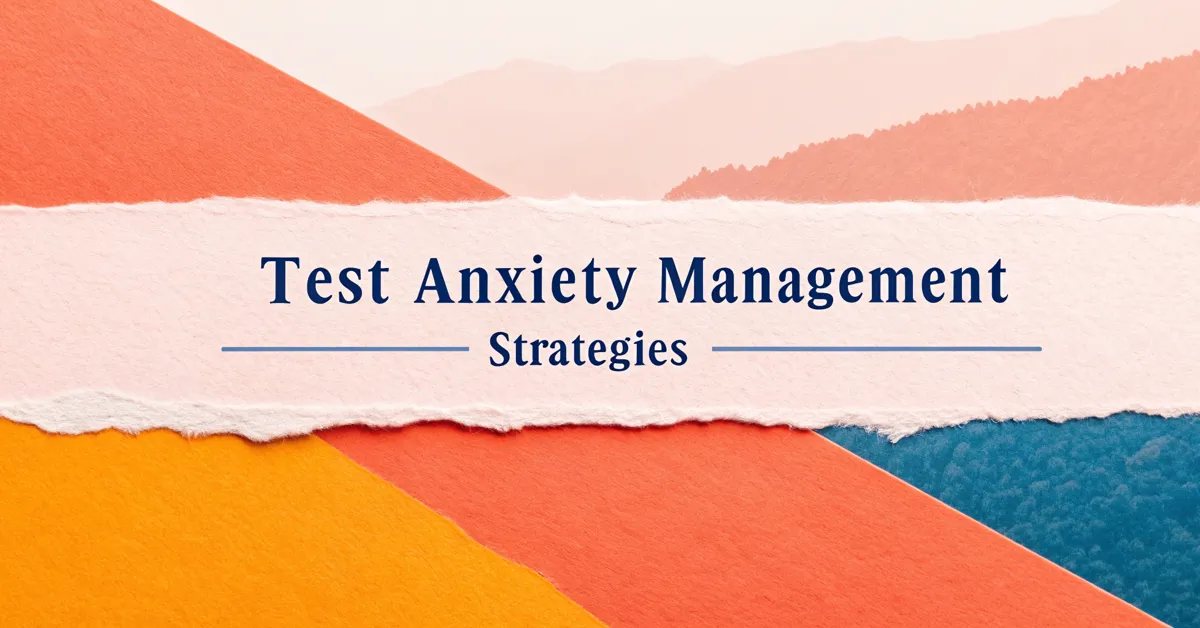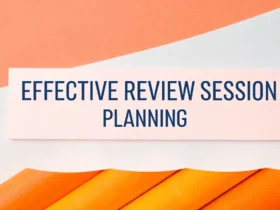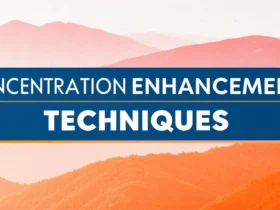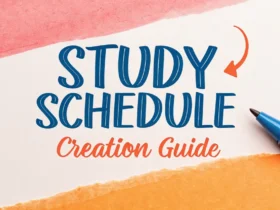Test anxiety can feel like a monster lurking in the shadows of your mind as exam day approaches. Does the thought of a test send shivers down your spine, make your palms sweat, and your heart race? You’re not alone. A significant number of students grapple with test anxiety. But there’s good news: this monster can be tamed.
Test anxiety isn’t just a case of the jitters. It’s a real physiological and psychological response that can derail your performance. This article will give you various test anxiety management strategies, from practical study tips to relaxation techniques and mindset shifts. These tools can help you take control, face your fears, and show your true potential on every exam. Let’s get started!
Understanding Test Anxiety
Before diving into solutions, it’s crucial to understand the nature of test anxiety. What is it? What causes it? How does it affect you?
Defining Test Anxiety
Test anxiety is more than just feeling nervous before a test. It’s a specific type of performance anxiety characterized by a combination of physical symptoms, negative thoughts, and behaviors that interfere with test performance. It can manifest in different ways and at different intensities for each person.
- Physical Symptoms: These can include a racing heart, sweating, trembling, stomach upset, headache, dry mouth, and shortness of breath.
- Emotional Symptoms: Feelings of fear, panic, helplessness, irritability, and disappointment are common.
- Cognitive Symptoms: Difficulty concentrating, racing thoughts, negative self-talk, and a blank mind are frequent cognitive manifestations of test anxiety.
- Behavioral Symptoms: Some students may procrastinate studying, avoid tests altogether, or experience difficulty sleeping or eating properly leading up to an exam.
The Root Causes of Test Anxiety
Several factors can contribute to the development of test anxiety:
- Fear of Failure: This is a significant driver. The pressure to perform well, meet expectations, or secure a specific outcome (like a good grade or acceptance into a program) can create intense anxiety.
- Past Negative Experiences: If you’ve had bad experiences with tests in the past, such as failing despite diligent preparation, the memory can trigger anxiety in future testing situations.
- Lack of Preparation: Feeling unprepared can dramatically increase anxiety levels. If you haven’t adequately studied or feel you don’t understand the material, you’re more likely to feel anxious.
- Perfectionism: Setting unrealistic standards for yourself can lead to overwhelming anxiety. The need to achieve perfection creates intense pressure that’s difficult to manage.
- Poor Test-Taking Skills: A lack of familiarity with test formats or effective test-taking strategies can lead to anxiety.
- Negative Self-Talk: Dwelling on negative thoughts and self-doubt can amplify anxiety. These negative thoughts can become self-fulfilling prophecies.
The Impact of Test Anxiety on Performance
Test anxiety can negatively affect academic performance in several ways:
- Impaired Concentration: Anxiety diverts attention away from the test and impairs your ability to focus on the questions.
- Reduced Memory Recall: High anxiety levels can block memory retrieval, making it difficult to recall information you’ve studied.
- Difficulty with Problem-Solving: The stress of test anxiety can interfere with your ability to think clearly and solve problems effectively.
- Decreased Motivation: Feeling overwhelmed by anxiety can reduce motivation to study or even attempt the test.
- Lower Test Scores: The combination of these factors often leads to lower test scores.
Strategies for Managing Test Anxiety
Now that you have a better understanding of test anxiety, let’s explore some effective management strategies. These strategies fall into several categories: preparation techniques, relaxation methods, cognitive restructuring, and test-taking strategies.
Effective Preparation Techniques
The cornerstone of managing test anxiety is being well-prepared. When you’re confident in your knowledge and abilities, you’re less likely to feel anxious.
-
Create a Study Schedule:
- Plan: Develop a structured study schedule that allocates specific times for each subject.
- Distribute: Space out your study sessions over several days or weeks rather than cramming. This allows for better retention and reduces stress.
- Consistency: Stick to your schedule as closely as possible. Consistency creates a sense of control and reduces uncertainty.
-
Master the Material:
- Understand: Focus on understanding the underlying concepts rather than memorizing facts.
- Engage: Actively engage with the material through techniques like summarizing, teaching it to someone else, or creating flashcards.
- Seek Help: Don’t hesitate to ask for help from teachers, tutors, or classmates if you’re struggling with certain topics.
-
Practice with Mock Tests:
- Simulate: Take practice tests under realistic test conditions (time limits, quiet environment).
- Analyze: Review your performance on practice tests to identify areas where you need more work.
- Familiarize: Become familiar with the test format, question types, and time constraints.
-
Organize Your Study Environment:
- Dedicated Space: Designate a specific study area that is free from distractions.
- Comfort: Ensure your study space is comfortable and conducive to concentration.
- Materials: Have all necessary materials readily available (textbooks, notes, stationery).
Relaxation Methods
Relaxation techniques can help calm your mind and body both before and during a test.
-
Deep Breathing Exercises:
- Technique: Practice deep, diaphragmatic breathing. Inhale slowly through your nose, filling your abdomen with air. Exhale slowly through your mouth.
- Frequency: Do this for several minutes whenever you feel anxious.
- Benefits: Deep breathing helps slow your heart rate, lower blood pressure, and reduce feelings of anxiety.
-
Progressive Muscle Relaxation (PMR):
- Technique: Systematically tense and relax different muscle groups in your body.
- Process: Start with your toes and work your way up to your head, tensing each muscle group for a few seconds and then releasing the tension.
- Benefits: PMR helps reduce overall muscle tension and promotes relaxation.
-
Mindfulness Meditation:
- Technique: Focus your attention on the present moment without judgment.
- Practice: Sit comfortably, close your eyes, and pay attention to your breath, bodily sensations, or sounds.
- Benefits: Mindfulness meditation helps reduce racing thoughts and increase awareness of your emotional state.
-
Visualization:
- Technique: Create a mental image of yourself succeeding on the test.
- Process: Imagine yourself feeling calm, confident, and focused as you answer the questions accurately.
- Benefits: Visualization can boost your self-confidence and reduce fear of failure.
Cognitive Restructuring
Cognitive restructuring involves identifying and challenging negative thoughts and replacing them with more positive and realistic ones.
-
Identify Negative Thoughts:
- Awareness: Pay attention to the negative thoughts that come up when you think about the test.
- Examples: Common negative thoughts include “I’m going to fail,” “I’m not smart enough,” or “I can’t remember anything.”
-
Challenge Negative Thoughts:
- Evidence: Ask yourself if there’s any evidence to support these negative thoughts. Are they based on facts or feelings?
- Alternatives: Come up with alternative, more balanced thoughts. For example, instead of “I’m going to fail,” think “I’ve studied hard, and I’ll do my best.”
-
Replace Negative Thoughts:
- Affirmations: Replace negative thoughts with positive affirmations.
- Examples: Repeat phrases like “I am capable,” “I am prepared,” or “I can handle this.”
-
Practice Self-Compassion:
- Kindness: Treat yourself with the same kindness and understanding you would offer a friend who is struggling.
- Perspective: Remember that everyone makes mistakes and that a single test does not define your worth.
Effective Test-Taking Strategies
Having a clear strategy for taking the test can also reduce anxiety.
-
Read Instructions Carefully:
- Understand: Make sure you understand the instructions before you begin the test.
- Clarify: Ask the test administrator if anything is unclear.
-
Plan Your Time:
- Allocate: Allocate a specific amount of time to each section or question.
- Monitor: Keep track of the time and adjust your pace as needed.
-
Start with What You Know:
- Confidence: Begin with the questions you know you can answer correctly.
- Momentum: This builds confidence and helps you get into a flow state.
-
Skip Difficult Questions:
- Avoid Getting Stuck: Don’t spend too much time on any one question.
- Return Later: Skip difficult questions and come back to them later if you have time.
-
Use Relaxation Techniques During the Test:
- Mini-Breaks: Take short breaks to practice deep breathing or other relaxation techniques if you start to feel anxious during the test.
- Re-Focus: Briefly close your eyes, take a few deep breaths, and refocus your attention on the task at hand.
Overcoming Specific Anxiety Triggers
Test anxiety often has specific triggers. Recognizing and addressing these triggers can be a significant step toward managing your anxiety.
Time Pressure
- Trigger: Feeling rushed or worried about running out of time.
- Strategies:
- Practice Time Management: Use practice tests to develop a sense of how long different types of questions take.
- Realistic Expectations: Set realistic expectations for how much you can accomplish in the allotted time.
- Positive Self-Talk: Remind yourself that you’re doing your best and that you can’t control how much time is available.
Difficult Questions
- Trigger: Encountering a question you don’t know how to answer.
- Strategies:
- Focus on What You Know: Remind yourself of the material you do understand.
- Process of Elimination: Use process of elimination to narrow down the possible answers.
- Educated Guess: If you have to guess, make an educated guess based on your knowledge of the topic.
Fear of Failure
- Trigger: Worrying about the consequences of failing the test.
- Strategies:
- Reframe Failure: View failure as an opportunity for learning and growth.
- Focus on Effort: Focus on putting in your best effort rather than obsessing over the outcome.
- Challenge Perfectionism: Remind yourself that it’s okay to make mistakes and that perfection is not attainable.
Long-Term Strategies for Managing Anxiety
While immediate strategies are helpful for dealing with test anxiety in the moment, long-term strategies are essential for building resilience and reducing overall anxiety levels.
Lifestyle Changes
-
Healthy Diet:
- Nourishment: Eat a balanced diet that provides your brain with the nutrients it needs to function optimally.
- Avoid: Limit caffeine, sugar, and processed foods, which can exacerbate anxiety.
-
Regular Exercise:
- Physical Activity: Engage in regular physical activity to release endorphins and reduce stress.
- Variety: Choose activities you enjoy, such as walking, running, swimming, or dancing.
-
Sufficient Sleep:
- Rest: Aim for 7-9 hours of sleep per night to allow your brain to consolidate information and recharge.
- Routine: Establish a consistent sleep schedule to regulate your body’s natural sleep-wake cycle.
-
Stress Management Techniques:
- Yoga: Practice yoga to promote relaxation, reduce muscle tension, and improve overall well-being.
- Hobbies: Engage in hobbies and activities you enjoy to take your mind off stressors.
- Social Connection: Spend time with friends and family to build strong social support networks.
Seeking Professional Help
If test anxiety is significantly interfering with your academic performance or overall well-being, it may be helpful to seek professional help.
-
Counseling:
- Therapy: A therapist or counselor can help you identify the underlying causes of your anxiety and develop effective coping strategies.
- Cognitive-Behavioral Therapy (CBT): CBT is a type of therapy that focuses on changing negative thoughts and behaviors associated with anxiety.
-
Medication:
- Consultation: In some cases, medication may be prescribed to help manage anxiety symptoms.
- Consideration: Medication should be used in conjunction with therapy and lifestyle changes.
Building Confidence and Resilience
Ultimately, overcoming test anxiety is about building confidence and resilience.
Setting Realistic Goals
- Achievability: Set goals that are challenging but attainable.
- Breakdown: Break down larger goals into smaller, more manageable steps.
- Celebration: Celebrate your successes along the way to build momentum and confidence.
Focusing on Strengths
- Awareness: Identify your strengths and areas where you excel.
- Application: Focus on using your strengths to overcome challenges.
- Positive Reinforcement: Remind yourself of your past accomplishments and successes.
Developing a Growth Mindset
- Learning: Embrace challenges as opportunities for learning and growth.
- Effort: View effort as a path to mastery.
- Persistence: Cultivate persistence and resilience in the face of setbacks.
Practicing Self-Care
- Prioritization: Make self-care a priority in your life.
- Activities: Engage in activities that nourish your mind, body, and soul.
- Balance: Strive for a healthy balance between work, rest, and play.
Beyond Grades: The Bigger Picture
It’s important to remember that your worth is not defined by your test scores. Tests are just one measure of your knowledge and abilities, and they don’t capture the full scope of your potential.
Recognizing Your Value
- Uniqueness: Acknowledge your unique talents, skills, and qualities.
- Self-Worth: Understand that your value as a person is not dependent on your academic performance.
Finding Meaning and Purpose
- Interests: Pursue your passions and interests outside of academics.
- Contribution: Find ways to contribute to your community and make a positive impact on the world.
Embracing the Journey
- Growth: View life as a journey of continuous learning and growth.
- Flexibility: Be open to new experiences and opportunities.
- Perspective: Maintain a sense of perspective and remember that challenges are a normal part of life.
Acing Life, Not Just the Test
Test anxiety management is not just about acing the test. It is also about building a life skill and developing the ability to control your emotion and thrive in high stress situations. Managing your test anxiety enables you to unlock your true potential, cultivate resilience, and embrace the journey of growth and self-discovery. Equip yourself with these tools and ace life, not just the test.















Leave a Reply
View Comments